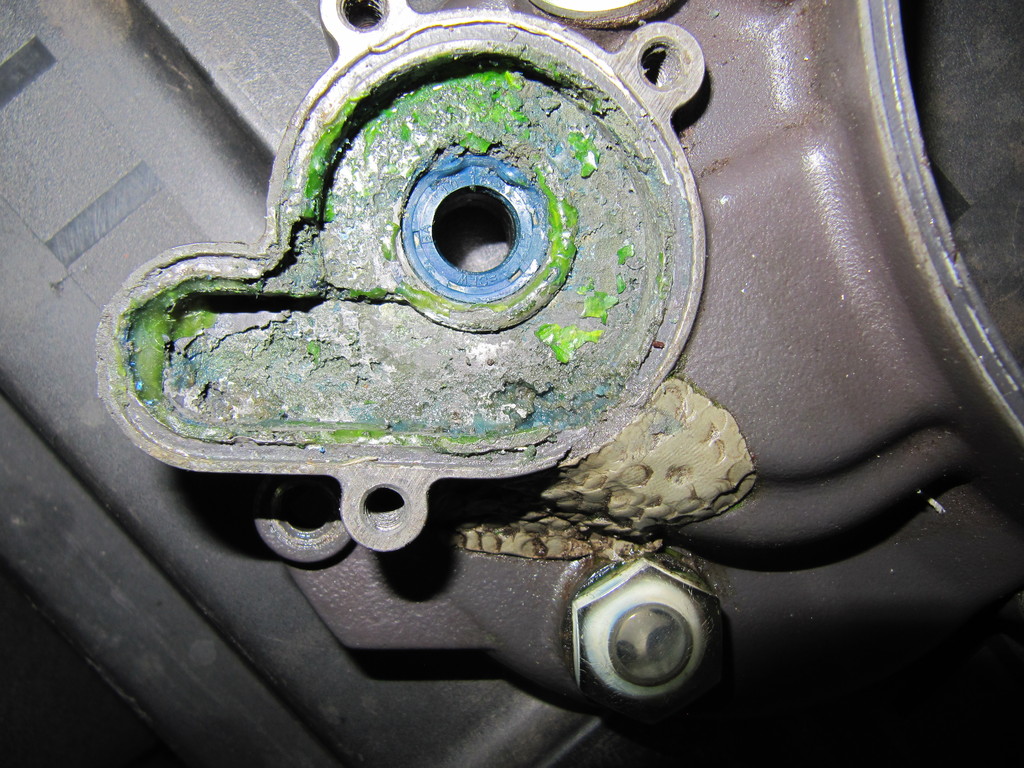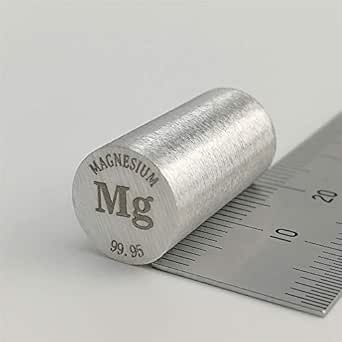The Role of Magnesium in Corrosion
One of the biggest challenges in the casting industry is improving the mechanical properties and corrosion resistance of alloys used in functional components. Corrosion not only leads to a reduction in the service life of parts, but also results in significant costs for repair or replacement of equipment.
Various materials are used to improve these properties in alloys, but one of the most important and widely used elements that has had a significant impact in this field is magnesium ingot. In this article, we will examine how magnesium functions and the role it plays in the corrosion of cast alloys.

Investigating the Role of Magnesium in Improving Alloy Properties
Magnesium is one of the essential metallic elements for improving alloy properties. Due to its lightweight nature, high strength-to-weight ratio, and excellent alloying ability with other metals, it has gained significant attention in engineering industries. In addition to these features, magnesium also plays a crucial role in corrosion resistance, as it can significantly enhance the corrosion resistance of various alloys.
When magnesium is added to casting alloys, it can refine the crystal structure of the base metal, enhancing hardness, toughness, and workability. In general, alloying with magnesium offers the following benefits:
Grain refinement and reduction of porosity in the metal
Stabilization of intermetallic phases
Increased wear resistance and temperature tolerance
What is the effect of magnesium on reducing metal corrosion?
Corrosion is usually the result of a reaction between a metal and its surrounding environment, including oxygen, moisture, chlorides, and other chemical agents. The role of magnesium in corrosion resistance occurs through the following mechanisms:
Formation of a protective magnesium oxide layer:
One of the most important mechanisms for reducing corrosion by adding magnesium to metal alloys is the formation of a thin and stable layer of magnesium oxide (MgO) on the surface of the metal or alloy. This layer acts as a barrier that prevents oxygen, water, and other corrosive substances from penetrating the surface, thereby protecting the steel or base alloy from corrosion.
Reduction of the electrochemical potential of alloys
Magnesium is a relatively reactive metal, and when added to alloys, it reduces the electrochemical potential differences between the various metals in the alloy. This characteristic significantly decreases galvanic corrosion, which is typically caused by potential differences between dissimilar metals.
Improving the uniform distribution of metallurgical compounds
Magnesium can help ensure the uniform distribution of intermetallic particles within the alloy structure. This demonstrates the direct relationship between magnesium and the strength of cast alloys, and it reduces the likelihood of porosity and cracks caused by localized corrosion.
Properties of Magnesium in the Casting Industry
In the casting industry, magnesium holds a special place due to its unique properties. These characteristics have made magnesium and its alloys widely used and considered strategic materials. Previously, we examined the role of magnesium in corrosion. In this section, we will discuss the properties of magnesium in the casting industry:
Lightweight nature of magnesium and
Magnesium is one of the lightest metals used in the casting industry and has a very low density compared to other metals. The density of magnesium is approximately 1.74 grams per cubic centimeter, while steel and aluminum have much higher densities.
Good castability
Magnesium has a low melting point (melting at around 650°C) and good fluidity in the molten state, making it a suitable material for the casting process. These properties allow magnesium to flow easily into molds during casting, producing precise parts with complex geometries.

Adequate corrosion resistance
Another important property of magnesium in the casting industry is its high resistance to corrosion. As discussed in the section about the role of magnesium in corrosion, magnesium oxide naturally forms on the surface of this metal, creating a strong protective layer that shields the metal surface from corrosive agents such as oxygen, moisture, and chemicals.
Role of Magnesium in Corrosion: High Alloying Capability
Magnesium has the ability to alloy with various metals such as aluminum, zinc, copper, silicon, and lithium. This characteristic allows for the creation of a wide range of magnesium alloys, each with specific properties tailored for diverse applications across different industries.
Vibration damping property
Magnesium and its alloys have a unique property in reducing vibrations. This characteristic arises from the special atomic structure of magnesium, making parts made from this metal highly resistant to mechanical vibrations.
Good Thermal Conductivity and the Role of Magnesium in Corrosion
Magnesium has good thermal conductivity, which makes it highly useful in cooling equipment, manufacturing engine parts, and other industrial applications. Good thermal conductivity not only helps dissipate heat but also enhances the stability of components at high temperatures.
Mechanical stability at high temperatures
Another prominent feature of magnesium is the stability of its mechanical properties at high temperatures. Unlike many other metals that lose their mechanical performance as temperature rises, magnesium can maintain good resistance against thermal changes.
Magnesium Alloys and Their Applications in the Casting Industry
Magnesium alloys have widespread applications across various industries. Depending on the elements added to magnesium, different properties are achieved, leading to specific uses:
Magnesium-Aluminum Alloys
Aluminum is one of the most important alloying elements combined with magnesium and plays a significant role in improving the mechanical and chemical properties of the alloy. This alloy is used in the automotive industry for manufacturing engine parts and vehicle interior frames, as well as in aerospace for producing lightweight aircraft components.
Magnesium-Zinc Alloys
Zinc is one of the important alloying elements combined with magnesium that improves the mechanical properties of the alloy. The corrosion resistance of magnesium alloys has made them suitable for applications requiring high hardness, mechanical stability, and chemical resistance.
Magnesium-Lithium Alloys
Lithium, as the lightest chemical element, when combined with magnesium, forms alloys that are much lighter and have lower density than any other type of alloy. Due to their very low weight, these alloys are used in specialized and advanced applications such as aerospace and military industries.

Effect of Magnesium on Corrosion in Casting Processes
Casting processes involve a series of activities that determine the structure of the produced alloys and their performance in final applications. The presence of magnesium in these processes can have multiple effects on the corrosion resistance of the cast alloy. The role of magnesium in corrosion during casting processes includes the following aspects:
Grain structure control
One of the main challenges in the casting process is the growth of large grains and porosity in the alloy structure. Magnesium helps control grain size and prevents their excessive growth, contributing to a fine and homogeneous structure, which significantly reduces corrosion.
Surface chemical composition modification
When magnesium is added to the alloy during the casting process, the formation of a magnesium oxide layer after casting acts as a protective barrier on the alloy surface. This layer prevents corrosive agents from reaching the base metal, demonstrating magnesium’s role in enhancing corrosion resistance in metals.
Role of Magnesium in Corrosion: Reducing Galvanic Corrosion
In many cases, the presence of magnesium in alloys helps reduce the effects of galvanic corrosion. This type of corrosion can occur rapidly in cast alloys containing multiple different elements, but the presence of magnesium slows down this process.
What is the role of magnesium in the corrosion resistance of cast alloys?
In the previous sections, we examined the role of magnesium in corrosion. However, to make better use of magnesium’s anti-corrosion effects in casting and to enhance the durability of these alloys, several strategies can be applied:
Controlling the weight percentage of magnesium: One of the key factors in corrosion resistance is the amount of magnesium present in the alloys. To benefit from magnesium’s role in reducing corrosion in cast alloys, this amount must be carefully calculated to maintain a balance between mechanical and chemical properties.
Combining with enhancing elements: Adding elements such as zinc, silicon, or lithium to magnesium can improve corrosion resistance in specific environmental conditions.
Using advanced casting processes: Techniques such as precision casting and high-pressure die casting lead to the production of alloys with a very fine-grained structure.
Post-casting surface treatment: Surface treatments such as anodic oxidation or surface coating on magnesium alloys can significantly enhance corrosion resistance.
Purchase of Pure Magnesium Ingots
Now that you are familiar with the role of magnesium in corrosion, it is important to know that selecting pure and high-quality magnesium is crucial for achieving optimal results in casting processes and producing corrosion-resistant parts. Fortunately, at Sepehr Alloy, we have made every effort to provide you with such a high-quality and pure product.
